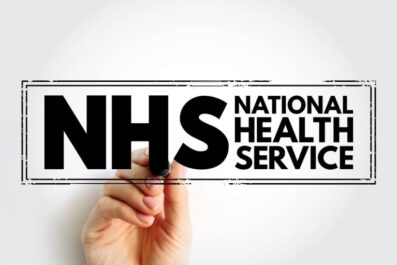Not a Disease: 3 Tips to Stay Healthy After Menopause

For those not yet in their perimenopausal or menopausal days, this period is simply a time when periods stop for good. That is exactly how the Mayo Clinic also puts it.
In more formal terms, it is a period of natural and steady decline in menstrual activity. A woman is declared to have reached this stage when she has not had her period for at least 12 months.
Most women enter their menopause in their 50s but some may reach even sooner (40s). The average age in the US is 51 years. For those approaching this period in life or already there, it can be a rollercoaster ride.
Some may believe that something is wrong with them, almost like they’ve developed a disease. This article will clarify that menopause is not a disease. We will share three useful tips on maintaining health during this period.
The ‘Over-Medicalization’ of Menopause
One doesn’t have to enter their menopausal years to realize that there is a negative perception surrounding this natural process. The world has over-medicalized this stage in the sense that it is seen as a disorder or disease that needs medical intervention.
This is often because menopause can bring with it symptoms like insomnia, hot flashes, fatigue, decreased sex drive, and night sweats. It is important to remember that these are perfectly normal signs that indicate a woman has entered her menopausal stage.
When hormones like estrogen decline, one must expect some major changes. This hormone plays a significant role in regulating the female reproductive system. Now, it is equally true that menopause is a sensitive period that increases the risk of certain diseases.
The Peril of Pelvic Organ Prolapse
One example would be pelvic organ prolapse or POP. In this condition, one or more organs may slip down their normal position and create a bulge in the vagina. Though not life-threatening, it can cause a lot of pain and discomfort.
It is estrogen that maintains the elasticity and strength of pelvic floor muscles. Its decline during menopause increases the likelihood of organ prolapse. This condition is often treated using a transvaginal mesh.
It is a surgically implanted tool that can support the weakened pelvic floor muscles. If the discomfort is mild, it is best to undergo no invasive treatment. Thankfully, the vaginal mesh is no longer recommended for POP management. This is because the mesh has led to many injuries like bleeding, infection, and organ perforation.
According to TorHoerman Law, over 100,000 lawsuits have also been filed, most of which have now been settled. Individual cases are still being accepted due to the widespread use of this mesh.
It has been alleged in the vaginal mesh lawsuit that manufacturers failed to warn of complications despite being aware. The main defendants are Coloplast, American Medical Systems, and Boston Scientific.
Even in the case of moderate to severe POP issues, other procedures like native tissue repair and pelvic floor therapy are safer options. Besides POP, women may also be at risk of osteoporosis and cardiovascular disease. Women can take certain steps to ensure a smooth transition to their menopause.
3 Ways Women Can Maintain Their Health After Menopause
Perimenopause and menopause are sensitive periods of a woman’s life. Your body will undergo multiple changes that raise the risk of some health issues. Follow these three tips to stay healthy even during this time.
Go for Hormone Replacement Therapy (HRT) Only if Needed
According to the Cleveland Clinic, Hormone Replacement Therapy (HRT) is a treatment used to manage the symptoms of menopause. Right from the transition period of perimenopause, a woman’s body goes through various changes.
These can lead to some uncomfortable symptoms. The hormone that takes a dip is estrogen. HRT aims at replacing this hormone that the body is not making enough of. A lack of estrogen also accelerates the process of bone loss or osteoporosis.
HRT can help with osteoporosis management as well. Now, whether or not this treatment is a good option for an individual is the main concern. This is best discussed with one’s healthcare provider.
The suitability and success rate of this treatment depends on individual factors like age, family history, medical record, etc. The procedure can have side effects like vaginal spotting or bleeding, sore breasts, leg cramps, and mood swings. For its benefits to outweigh the risks, it is important to proceed only if needed and under a doctor’s prescription.
Maintain a Healthy Lifestyle, Now More Than Ever
As per the National Institutes of Health (NIH), menopause leads to several hormonal changes in the body. They can put a woman at risk of health conditions like cardiovascular disease, certain cancers, and bone loss.
Maintaining a healthy lifestyle has become highly important, now more than ever. The key to this is proper nutrition and regular exercise. When done right, these can not only lead to a healthy lifestyle but also ease menopause symptoms.
As per Healthline, food products that will benefit women after menopause include –
- Dairy products such as milk, yogurt, and cheese
- Healthy fats like Omega-3 fatty acids found in nuts, seeds, and fish such as salmon and mackerel
- Whole grains like quinoa, barley, and brown rice
- Fruits and vegetables like leafy greens, berries, and cruciferous vegetables
As for exercise, experts believe women can perform moderate exercise for around 150 minutes each day. This can include a combination of strength-building exercises like squats or push-ups and cardiovascular exercises.
Eliminate Stress Ruthlessly
In general, stress is a red flag from the health viewpoint. A body that is constantly in fight or flight mode becomes weak before its time. Women who are reaching or have reached menopause will only worsen their symptoms with stress.
The female body runs on a delicate balance of estrogen and progesterone, with the former being higher than the latter. High levels of stress increase the production of cortisol, a hormone that disrupts this delicate balance.
As a result, the woman is at risk of having hot flashes, sleep disturbances, digestive issues, and mood swings. You need to eliminate stress through effective techniques. While a healthy lifestyle is one way to do that, others include meditation, mindfulness, and owning a pet (preferably a dog).
Conclusion
Has this article given you useful strategies to deal with menopause symptoms? We sure hope it has! Instead of the downsides, focus on the bright side. This period is your opportunity to become the best version of yourself. With no menstrual headaches, you can engage in more self-care and personal growth.





